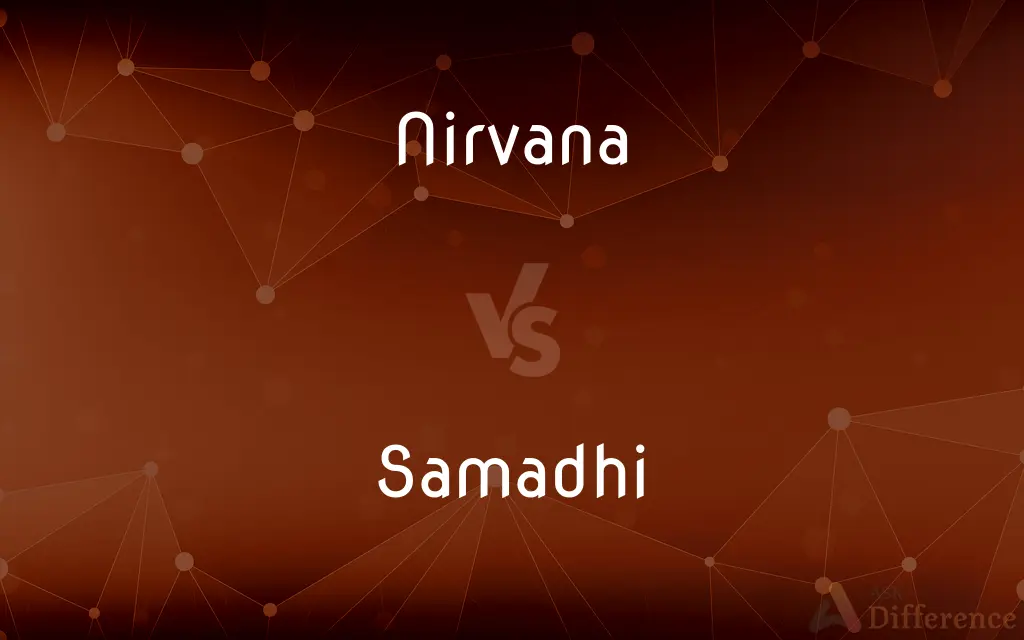Nirvana vs. Samadhi — What's the Difference?

Difference Between Nirvana and Samadhi
ADVERTISEMENT
Compare with Definitions
Nirvana
Nirvāṇa ( neer-VAH-nə, -VAN-ə, nur-; Sanskrit: निर्वाण nirvāṇa [nɪɽʋaːɳɐ]; Pali: nibbāna; Prakrit: ṇivvāṇa; literally, "blown out", as in an oil lamp) is a concept in Indian religions (Buddhism, Hinduism, Jainism, and Sikhism) that represents the ultimate state of soteriological release, the liberation from repeated rebirth in saṃsāra.In Indian religions, nirvana is synonymous with moksha and mukti. All Indian religions assert it to be a state of perfect quietude, freedom, highest happiness as well as the liberation from or ending of samsara, the repeating cycle of birth, life and death.
Samadhi
Samadhi (Sanskrit: समाधि), in Buddhism, Hinduism, Jainism, Sikhism and yogic schools, is a state of meditative consciousness. In the yogic traditions, and the Buddhist commentarial tradition on which the Burmese Vipassana movement and the Thai Forest tradition rely, it is a meditative absorption or trance, attained by the practice of dhyāna.
Nirvana
(Buddhism) A state in which the mind, enlightened as to the illusory nature of the self, transcends all suffering and attains peace.
Samadhi
A state of transcendent union supposed to be assumed by a holy man or yogi at his death.
Nirvana
(Hinduism) A state in which the soul, having relinquished individual attachments and recognized its identity with Brahman, escapes samsara.
ADVERTISEMENT
Samadhi
The highest state of meditation, at which complete unity is reached.
Nirvana
An ideal condition of rest, harmony, stability, or joy.
Samadhi
The tomb of a holy person or saint in India.
Nirvana
(Buddhism) Complete cessation of suffering; a blissful state attained through realization of sunyata; enlightened experience.
Nirvana
State of paradise; heightened or great pleasure.
Nirvana
In the Buddhist system of religion, the final emancipation of the soul from transmigration, and consequently a beatific enfrachisement from the evils of worldly existence, as by annihilation or absorption into the divine. See Buddhism.
Nirvana
(Hinduism and Buddhism) the beatitude that transcends the cycle of reincarnation; characterized by the extinction of desire and suffering and individual consciousness
Nirvana
Any place of complete bliss and delight and peace
Share Your Discovery

Previous Comparison
Mystic vs. Oracle
Next Comparison
Histrionic vs. Hyperbole













































